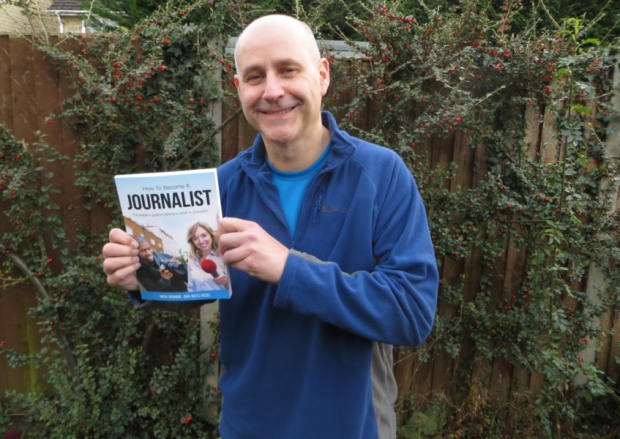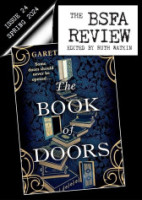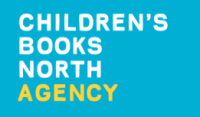Twenty-first century publishing options
By William G. Tedford
firstwriter.com – Saturday November 29, 2008
It's hard to keep current with the times. I'm awaiting the day I see my first electric car pull up to a gas pump. The smartest of those who laugh will be laughing with the hapless driver, not at them. We've all thrown away rechargeable batteries, or left a fork in our soup sparkling away in the microwave oven. We know a lot about how things used to be, but less about new things arriving on the scene. The fast pace of technological change catches us all by surprise now and then.
For writers, future shock is the current state of the publishing industry. We all know how traditional publishing works. A publisher accepts a manuscript. The writer receives an advance payment. The book is published, thousands of copies at a time, and distributed in brick and mortar book stores. The books sells like peanut butter. Royalty checks are issued at regular intervals. It's what many of us expect of the experience of publishing a book. This is still largely how the industry operates. The new aspects of the industry are the internet and POD, or print-on-demand publishing. They complicate the process rather severely.
Using my own experience as an example of how things have changed for better and for worse, I wrote a book on a manual, portable typewriter in the late sixties and sold it first time out for a pencil-written check for five-hundred dollars. I used one-half of the money to pay for the typewriter.
I wasn't a particularly skilled writer. It used to be far easier to sell the written word. The process of writing itself was both a substantial chore and a financial burden. Words on paper can't be edited. Enormous quantities of paper were invested in rendering a well-written, error-free novel. Because of the foresight and care needed to complete a manuscript, writing took genuine motivation, and publishers had less to work with. Typewriters cost then what computers cost now, even manual portables. They required constant supplies of inked ribbons and paper, which were not cheap items in that day and age.
The fifty-two thousand word manuscript I sold was never published per se, but used for "lines". I didn't know what that meant. Two or so years later, I stumbled across what it meant at a local drive-in theatre. They had made a B-grade biker movie out of my story. The experience seriously overinflated my ego.
End of round one. I won.
I used an electric typewriter in the late seventies that could backspace and correct a single typo as they occurred. I wrote four science-fiction novels and sold those first time out without an agent to a small paperback publisher. I received one quarter of my advance, and then they went bankrupt. I've been bankrupt myself, so stuff happens. They reorganised as another publisher and reprinted three of the four novels. I received another check for a couple of hundred dollars and was out several thousand.
End of round two. Something of a draw; at least I got published.
Finally, Berkley Diamond published one of my horror novels in '92, the epitome of the traditional publishing experience. I mailed the manuscript to an agent. The agent sold the book. Copies appeared in drug and grocery store paperback racks everywhere. I received an advance and earned no royalties, because it was a vampire novel that got delayed until Christmas and didn't sell well. Unfortunately, the sales effort was exhaustive. I didn't have another book ready to go. My agent dropped me.
End of round three, and out for the count of ten.
At this point, I got seriously distracted. My next novel was written on a computer, green on a tiny black screen, a pittance for a memory, no hard drive, five and a quarter-inch floppy disks, one chapter per 360K disk, no internet connection.
I wrote too fast. The quality of my writing suffered. I wrote one novel after another in record time, but fast writing tends to be superficial writing, surfing roof-brain chatter. Fiction needs a hefty investment of depth of thought to hold a reader's attention.
Once the internet arrived on the scene, epublishing made an appearance. Writers across the world had a simultaneous thought. Why waste paper? Read books on the computer! No agent needed. Downloadable novels in ebook format need no publisher, not on your own inexpensive website.
I put my eight books on seven epublishing sites, including my own, and over a four-year period received another pencil-written check, this one for $3.87. My own unadvertised website averaged just a few hundred hits a year and sold nothing.
What happened? I've noticed that most ebooks were not well-written. My own were in bad need of objective feedback. I encountered one "publisher" who took pride in not reading or filtering any ebook submitted to his site. It was up to the reader to pay and then evaluate the material for other readers. Yeah, like that worked out really well.
Traditional publishers have endured slush piles of tens of thousands of unsolicited manuscripts per year down through the decades. Where do we suppose they all went to? Why, on epublishing sites, one must suspect. The best quality writers and their books are still to be found associated with traditional publishers.
Even so, many ebooks are of professional quality. I didn't think mine were half bad, certainly worth three or four bucks per read, but good ebooks are in perpetual bad company, because many ebooks are unreadable. They compete with hardcopies of flawless professional fiction on nearby paperback racks at sometimes half the cost of even a stupidly priced ebook. Epublishing sounds like an ideal scheme from a writer's point of view, but the effort to see the pitfalls from the standpoint of a reader is crucial.
Let's clear up one fact of life off the bat. There are more good books to be read than there are readers to read them. The publishing industry has nothing to do with that fact. They do their best to attract readers. They spend major bucks in the attempt. In the end, they are not responsible for the fact that one quarter of US citizens are illiterate. Illiteracy rates may be lower in Europe and higher in developing nations, but they represent a stillborn market.
And now POD has arrived, print-on-demand publishing, the equivalent of a printed ebook, increasing the number of books that can be placed in the hands of that limited readership. They don't read any more than they have in the past. They just have a broader choice of what to read.
Electronic storage and laser printing enables the likes of Lulu.com, Wordclay.com, and probably other sites of which I'm not aware, to offer POD printing. This is not POD publishing. These printed books have no ISBN and are available only through the site that offers the service. If a three-hundred page file contains nothing but the letter "a" on each page, that will be the content of the book shipped. Lulu.com and other POD printers do offer paid servicing and otherwise free POD publishing, but this aspect of their business will be discussed a bit later where they will be grouped with POD publishers in general.
You can upload your manuscript and a cover, or use an online cover-wizard and a selection of stock cover images, fill in some information and a blurb and "publish" a book entirely free of any charge whatsoever. You're not required to buy a copy, or to sell copies on their online storefront.
I've printed fourteen books in this fashion, for myself, my family, and friends. They sit upon my bookshelf and look rather magnificent. I have an online Lulu bookstore where they are available in either paperback or hardcover. I thought perhaps readers would buy my attractive, professionally-written hardcopies, if they were not willing to read downloadable ebooks.
Have I sold any yet?
Nope. Nary a single copy, aside from from my own purchases. Do not expect to sell books in this fashion. Lulu.com and other POD printers earn their living from their authors, from the books they order, although I'm profoundly grateful for their existence. If you want to provide your new novel to a friend, family member or associate for a free read, why not as a high-quality paperback, or hardcover, complete with a professional-quality cover?
As for the sales potential of POD books in general, browse Lulu's catalogue of books and other media. Calculate the amount of time it would take to glance at each and every one of tens upon tens of thousands of offerings. Calculate the odds of having your own book encountered by a browser who just happens to take an interest in what you have to offer. Amazon.com's literary base is far larger.
Here's where publishing gets scary. Advertising and distribution are everything. Not just important. Everything. Only the old-fashioned traditional publishers will load trucks with tens of thousands of copies to be shipped to brick and mortar book stores. If they don't let us play their game, if they don't have room for us, what are we to do? What are our options?
There are vanity publishers who will "publish" your book for hundreds to many thousands of dollars. They cannot guarantee sales. They do not necessarily care if your book is coherent. They may go through the motions of some minor advertising and distribution, but they are helpless in that regard, because the proven earnings of their product sustain nobody. The books they print are intended for their authors' "consumption".
Vanity publishers are, in essence, very expensive printers. They have a right to offer these services and are to be respected when their intent is honest. If they delude authors into believing they are publishers in the traditional sense of the word, only then are they dishonest and of criminal intent.
Many electronic and POD publishers are vanity hybrids. Because these services are offered piecemeal, less confusion ensues. A manuscript can be critiqued for a price. Edited. Copy-edited. Ghostwritten. Books need covers. Professional graphic artists provide such services. You can pay to have a POD book published. It will be featured on the publisher's website alongside a downloadable ebook and will be included in literary databases accessible to Amazon.com and other online and brick and mortar book stores.
There are, however, a rapidly expanding number of online publishers who emulate traditional publishing. They will publish your book entirely free of up-front charges and pay royalties. Because they rely upon the sale of books for their and your profit, these publishers are not indiscriminate. Your novel will have to meet their literary standards, although they tend to be lower than traditional standards which will have print-runs of tens or hundreds of thousands of books at stake.
These publishers, vanity and traditional POD publishers, will publish your book as a POD with an ISBN number, which will make it available on the publisher's website, Amazon.com, and online and brick and mortar book stores. It will exist as a string of binary code in a database awaiting an order and be printed and shipped one book at a time when an order arrives.
There is a pitfall here, a serious issue that has the audacity to raise its ugly little head. POD books which need to earn money for their publishers can be quite expensive, far more so than hardcopies from traditional publishers who cut costs printing thousands of copies at a time and who take a far smaller percentage in profit per book. In my personal opinion, POD books are prohibitively expensive and POD publishing will consign a book to relative and perhaps total obscurity. Online epublishers tend to flash on and off like fireflies on a warm summer night, because nobody's found the magic formula for selling more books than there are readers to read them.
Then what's an author to do? With a completed manuscript in hand, what's the best route toward that illusive goal of fame and fortune?
Traditional publication is the only way to go if at all possible. Many traditional publishers require submissions through agents to filter for quality. There is considerable advice to be had on selecting an agent, so we needn't address that facet of the process in this article.
Obtain an agent to represent you.
If you try absolutely everybody and nobody wants to represent your manuscript, or until you do find an agent who will, start at the beginning.
Submit directly to traditional publishers who will allow you to do so.
Avoid for the time being any publisher who mentions POD. Comply with their submission requirements. Start with the major publishers and work your way down. Exhaust all potential before "giving up" on that book.
If no traditional publisher expresses an interest, and that book is the only one you are going to write in your lifetime, consider a POD publisher with a good track record who requires no fees or payments and offers royalties. The fact that their earnings are tied to their sales efforts works to your advantage.
If your manuscript does not attract the attention of POD publishers who emulate traditional publishers, vanity publishing won't get you where you want to go. You can have your book POD printed for a tiny fraction of the expense through the likes of Lulu and Wordclay. If you have lots of disposable income and little motivation to do it yourself, feel free to consider vanity publishers business partners. You are the customer they seek.
But here is where I will diverge sharply from conventional advice on how to get a book to market.
The goal of publication is fame and fortune. Both depend on how well you write and what you write about. Rich and famous writers don't pop spontaneously into existence. Read Stephen King's biography. Appreciate the years of sacrifice and slavery to what must have seemed to others to be an unrealistic, unobtainable obsession: the goal to write and sell enough fiction to support a family.
It was once said that a writer typically wrote one million words before his or her first sale. That reflects my experience, but even after that first sale, not everything you write will automatically find a publisher. Even professionals cannot sell everything they write.
What do you do with your unsold material? How do you use it to obtain feedback from readers?
The internet offers an untapped potential for budding authors, and even experienced ones. Websites are easy and inexpensive. They provide exposure and offer the potential for a bit of fame before the fortune sets in. But before you play too openly with your manuscript, take out copyright protection for your book. For countries in the Berne Convention (that's nearly every country in the world, but click here for a full list) you can do this online through the Copyright Registration Service of the IP Rights Office [firstwriter.com subscribers save 10% on their registration fees – click here to subscribe]. In the US a file can also be uploaded to the Library of Congress for a $35 fee, payable by credit card.
Put the book on your website in pdf form and offer it as a free read in exchange for feedback.
Yep, I heard that chorus of protest. “Oh, no, somebody will steal my novel and sell it as their own!”
Surely, literary thefts happen occasionally. It's never profitable, and dangerous to those who try. Plagiarism the equivalent of stealing soda cans for their deposit. Copyright protection is the equivalent of having a lock on our doors. It's largely the only caution we need take. After all, a plagiarist can as easily scan and convert a printed book, and far more of those are available, and they're generally of higher quality. I don't worry about thieves stealing my books because I give internet-savvy readers of my books due credit for intelligence.
I gave up on my career and offered my books as free reads along with the printed copies of the books on Lulu.com simply because I enjoyed writing and didn't want to see it all go to waste. Over a period of a year, fourteen books were downloaded in ebook format about a thousand times. I recently reconsidered and stopped the practice, but in doing so I've engulfed myself in total electronic silence.
Why did I stop? I didn't. I only paused. I wasn't getting any feedback from the novels that were downloaded. I want something of practical use for the effort of making them available. Readers can tell me how much of the novel they read and what they found to be the major flaws or defects in the story or writing. Once I've made that modification, the novels will go back up as free reads on my website.
If a book goes nowhere, sacrifice it toward the goal of a bit of fame. Let it garner some feedback to be invested in the next book. Put hopes of fortune on that next book.
Through it all, we worry about success and failure. We all have varying definitions of what constitutes success. A single published book suffices for some, a career unto death for others. Failure is harder to define, because we can always try again knowing that nobody succeeds without having failed in their initial efforts. In other words, success and failure are relative terms.
Regardless of what books get published and who makes what amount of money, writers are the originators of ideas. If those ideas reach any reader at all, remember those six degrees of separation between all minds on the face of planet Earth. Ideas tend to settle in our subconscious where they interact with other ideas and take new form. Our idle ideas evolve as they flow from one mind to another, and they mature to fruition in minds greater than those who gave them birth.
Ideas are the engine of modern civilisation. They originate largely with us alone as writers. I've contributed to that pool, that resource for civilisation, as will you.
Our endeavours, not our successes, deserve our pride and respect.
Writers never fail.




 A Complete Guide To Self-Publishing A Book On A Budget
A Complete Guide To Self-Publishing A Book On A Budget This sinister censorship agenda in the publishing world should trouble us all
This sinister censorship agenda in the publishing world should trouble us all A manifesto for self-publishing authors
A manifesto for self-publishing authors 50 Shades of self-publishers: Fame and fortune through publishing yourself online
50 Shades of self-publishers: Fame and fortune through publishing yourself online Is self-publishing the new black?
Is self-publishing the new black? Staying positive about publishing
Staying positive about publishing How I got a publishing deal - An interview with author, Rachel North
How I got a publishing deal - An interview with author, Rachel North How I got a publishing deal - An interview with author, Francis Sookraj
How I got a publishing deal - An interview with author, Francis Sookraj How I got a publishing deal - An interview with author, Christine McAteer
How I got a publishing deal - An interview with author, Christine McAteer When the Sharing Economy Comes to Publishing
When the Sharing Economy Comes to Publishing Want to Succeed in Self-Publishing? Have a Plan: Tips from an Indie Author
Want to Succeed in Self-Publishing? Have a Plan: Tips from an Indie Author Melton Times reporter Nick Rennie shares the secrets of writing and self-publishing your own book
Melton Times reporter Nick Rennie shares the secrets of writing and self-publishing your own book How to get a job in digital publishing
How to get a job in digital publishing Thinking Of Publishing A Book? Here Are Three Things You Need To Know
Thinking Of Publishing A Book? Here Are Three Things You Need To Know Bournemouth to host romance writing festival for writers
Bournemouth to host romance writing festival for writers New Publisher Listing: Adventure Books by Vertebrate Publishing
New Publisher Listing: Adventure Books by Vertebrate Publishing New Literary Agent Listing: Amandeep Singh
New Literary Agent Listing: Amandeep Singh New Magazine Listing: The BSFA Review
New Magazine Listing: The BSFA Review New Publisher Listing: Practical Pre-School Books
New Publisher Listing: Practical Pre-School Books DK ventures into children’s fiction with new imprint DK flip
DK ventures into children’s fiction with new imprint DK flip New Publisher Listing: Sourcebooks eXplore
New Publisher Listing: Sourcebooks eXplore New Book Publisher Listing: Sourcebooks Horror
New Book Publisher Listing: Sourcebooks Horror Hayward poet Pat Doyne holds free metaphor workshop
Hayward poet Pat Doyne holds free metaphor workshop New Publisher Listing: Bearded Badger Publishing Co.
New Publisher Listing: Bearded Badger Publishing Co. Authors await overdue payments as publisher Unbound goes into administration
Authors await overdue payments as publisher Unbound goes into administration New Literary Agency Listing: Children’s Books North Agency
New Literary Agency Listing: Children’s Books North Agency New Spotify Audiobooks publishing programme for independent authors
New Spotify Audiobooks publishing programme for independent authors Publisher Unbound Slides Into Administration
Publisher Unbound Slides Into Administration ChatGPT firm reveals AI model that is ‘good at creative writing’
ChatGPT firm reveals AI model that is ‘good at creative writing’
